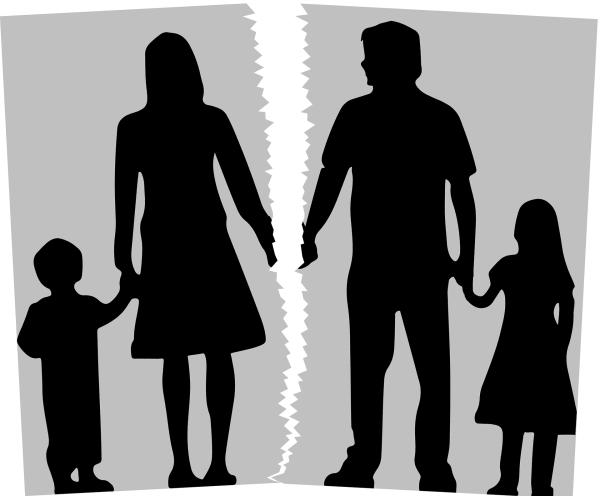Divorce with children is a particularly trying experience for many families. Rarely is it ever easy or without its challenges - even in the best of circumstances or when it is the right decision for all parties. Thankfully, there are healthier ways to move through and beyond it that can allow everyone involved to thrive and inevitably blossom.
This is why when bitter custody battles hit the front page it saddens me. Such an extreme scenario was just featured in the New York Post entitled Mom Jailed After Baptizing Her Daughter. The mother violated a judge’s order by having a clandestine baptism for her child without the father’s knowledge or consent. Her defiance bought her a week in prison.
As a pediatrician in practice, I observed too many times the preoccupation with interparental vitriol typically coming at the expense of the child. And the ramifications are often not short-lived.
To quote Frederick Douglass “it is easier to build strong children than to repair broken men.”
Fortunately, this type of case is not the norm which is why I am not extensively addressing it. It is also important to note that there are instances where active participation from one parent can be problematic and destructive. But, I prefer to focus here on the more common ones - the ones that have a propensity to vacillate between amicable and unpleasant.
People are messy and complicated. No one is perfect. We aren’t always self-reflective or possess insight and awareness into our role in events. Often, in situations of great stress like divorce, the feelings of failure or guilt over the circumstance, which is never what parents dreamed of for their child, is too overwhelming so coping mechanisms like denial flourish.
Denial is a powerful thing. I can’t count how many times I have witnessed unsavory behaviors between parents from belittling to demeaning to yelling in the middle of a doctor’s visit in front of the child. The refrain was always the same when reality tested, “oh, we never do that” or “we never do that in front of him.” To which I’d respond, “well, you just did.” And I would hear back “we never yell at home.” “But you did the last three visits here” I would say. And crickets. Or, the frequent go to “we make sure he has no idea.”
Kids know a lot more than adults realize and usually absorb the stresses of their environment. The family dynamic plays a critical part in a child’s development. Facing the cause is not about hurling blame, rather it can protect a child from carrying unresolved issues into adulthood.
The science is clear and extensive on this and can be reviewed in my pieces “To Avoid Adult Dysfunction Start ‘In Utero’” or “‘Is Anthony Weiner a Sex Addict?’ is the wrong question.”
Children feed off of their parents’ reactions. When the parent is calm, the child calms. When young children sense anxiety, they mimic it and act out. A parent’s suffering is a child’s suffering. These symbiotic relationships perpetuate the current and intergenerational struggles of families.
So when parents can’t even be in the same room with one another, it is the child who mostly suffers. The good news is well-timed intervention can facilitate an improved future and empower families amidst such apparent crises.
I have written here about the impact of toxic stress on physical and mental well-being. The science supports the profound impact of childhood trauma in the later development of adult disease (e.g. elevated risk of cardiovascular disease, asthma, cancer, and depression). It is widely known and accepted that the Adverse Childhood Experiences Study (ACE) “found a strong graded relationship between the breadth of exposure to abuse or household dysfunction during childhood and multiple risk factors for several of the leading causes of death in adults.”
From Best Practices to Breakthrough Impacts: A science-based approach to building a more promising future for young children and families by the Harvard University’s Center on the Developing Child is a compelling read. In it, the authors underscore how development is a highly interactive process where life outcomes are not exclusively set by genes.
In part, a lack of resilience and effective coping skills can put one at greater risk of health issues and substance abuse in adulthood. Especially if not appropriately managing unrelenting chronic stress (e.g. poverty, abuse, vitriolic divorce).
In my experience as a pediatrician, the toxicity would only get emboldened by the legal process. With divorce lawyers emphasizing mounting a case, parents get knee deep mired in negativity. When situations get so advanced in discord, a forensic psychologist might become involved through the court. Tasked with helping determine custody, they often resort to contacting the pediatrician to see how often each parent took the child to the doctor as part of their assessment of who is a “better” or more involved parent. Such a factor can be an inherently flawed metric if, for instance, in a single income family or where one’s job is less flexible.
Whenever possible, avoiding escalation to the court’s discretion is way more optimal for all. It is crucial to the well-being of children thrown into the middle of such turmoil to be a consistent reminder to parents to keep their anger and hatred in check. Though in many situations it is profoundly difficult (and in some cases impossible), trying not to be reactive by focusing more on the love you have for your child than the hatred you have for your spouse will better serve the entire family. It’s not a simple ask, but it can be an invaluable one.




